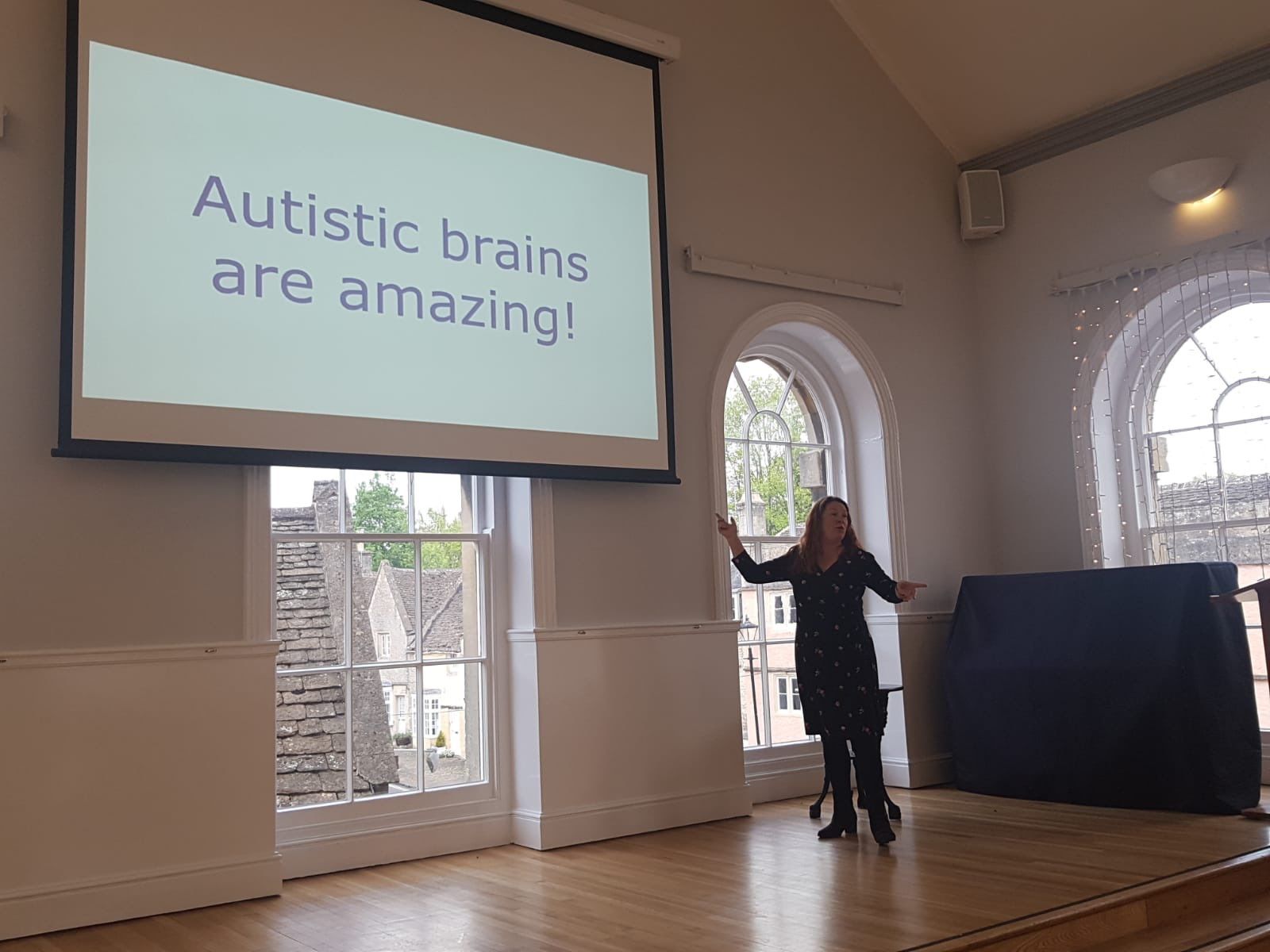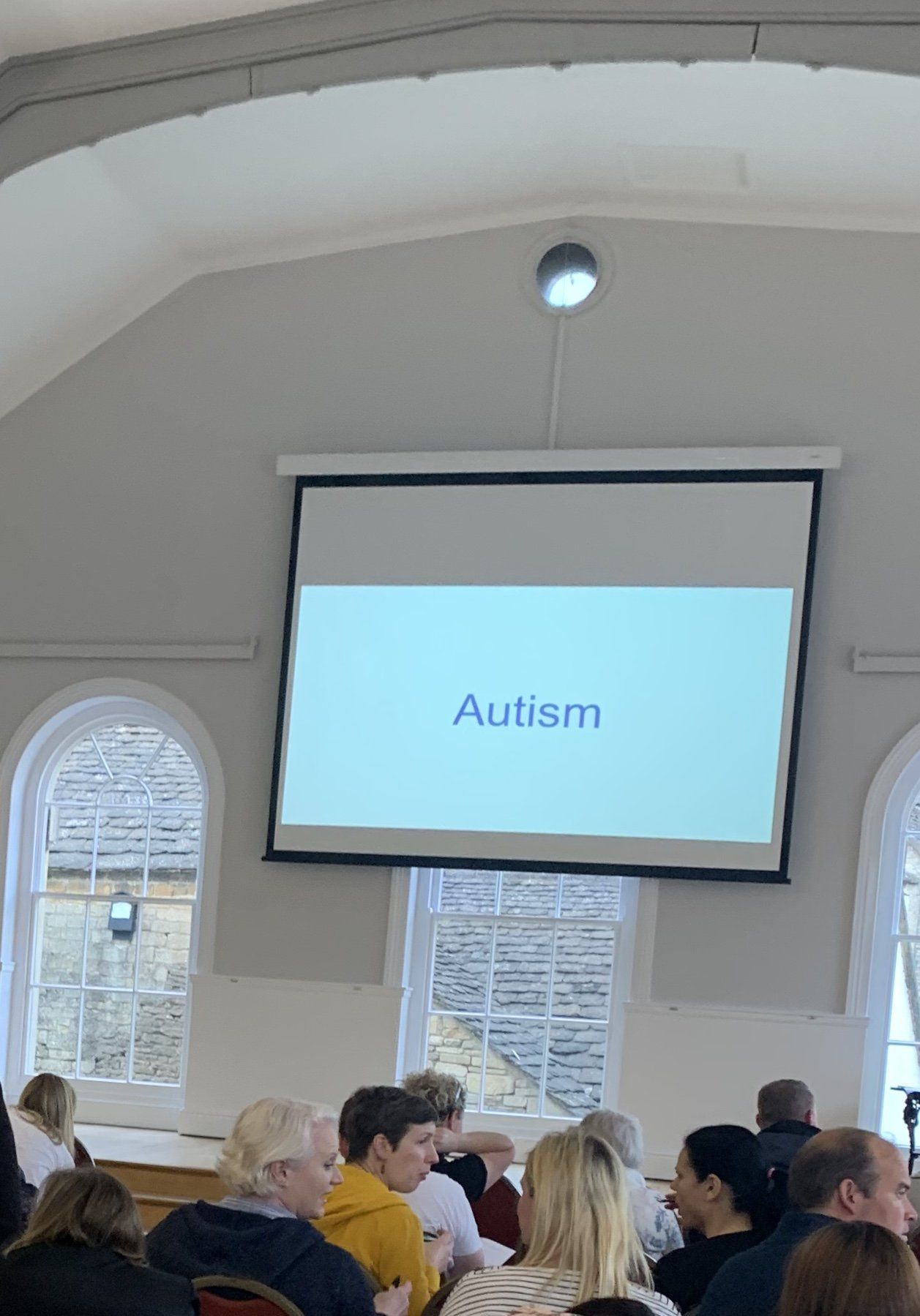By Helen Eaton
•
November 15, 2019
Hello In this newsletter I'll share some Autism statistics that might surprise you, let you know what I've been up to, what's coming soon, along with some information about me. There's a good chance you haven't yet met me, and so an introduction and explanation about what I do and why I do it might be helpful. Autism Top Tip = Keep It Visual! By this I mean it's easy for an Autistic person to become distracted or overloaded by everything that's going on them. Using anything visual - photos, videos, icons, diagrams - is a great way of sharing information and instructions. Visuals are also consistent, long-lasting and have a low sensory impact (they don't talk back!). So remember to don't just say it - show it! I take photos of everything I need to remember, so I can look back on them in my own time. I actually find photography very calming and enjoyable, and always use my own images on my website and emails. Nature's colours at this time of year are spectacular. Why is understanding Autism important? There is clear statistical evidence that understanding Autism is incredibly important, based on the number of Autistic people, the lack of knowledge in recognising and supporting autism, and the lengthy impact of long delays in receiving a diagnosis. It's important to know that after diagnosis many families are waved away from the consultant with simply a few information leaflets and no further support. If we all increased our knowledge and understanding of Autism, hundreds of thousands of lives could be improved in the UK. In the UK there are around 100,000 children diagnosed as Autistic, with many more still undiagnosed due to a number of factors, (including reluctance, mis-diagnosis, lack of knowledge). Around 70% of Autistic children are in mainstream education. In England the average waiting time to start diagnostic assessments was 4 months in 2016, with the longest waiting time in 2017 being 26 months. (British Medical Association) The time taken to actually issue a diagnosis is significantly longer. Research suggests less than 16% of Autistic people are in employment, are often overqualified and over skilled for the roles that they’re in. My own experience has shown me that many schools don’t fully understand the needs of Autistic children, leading to high levels of distress in the classroom, exclusion, and families choosing to home educate. Who am I? The most important things to say is that I live and breathe Neurodiversity every single day. None of my family think or process the world in a typical way, and I can trace Autistic traits, Dyslexia, and more throughout my family tree. I’ve spent the last 15+ years delivering leadership and business skills training to some of the UK’s leading finance and technology companies. In 2011 I gained a Post Grad qualification in Primary teaching. After one of my own children was diagnosed as Autistic, I then began to specialise in Autism. For 18 months I worked as a trainer for a leading Autism social enterprise, delivering webinars and workshops across the South West. During that time I was very privileged to be a guest on Michael Rosen’s BBC Radio 4 Word of Mouth show, talking about Autism and communication and I have spoken at a NAS Conference on Autism and socialising. I went on to launch my own Autism business in 2018. What do I offer? Workplace training on Autism and SLDs School staff training Assemblies and classroom talks Public speaking for groups, events and conferences Leadership and Business skills training incorporating Neurodiversity Total SDI™ profiliing, team building and conflict skills Why do I do what I do? Nothing can replicate the wonderful feeling I get when I hear that the work I’ve done has made a positive difference to a family or individual. I also love walking out of a classroom or training room knowing that I have increased knowledge and understanding. I also work to dispel the myth that we are all a little bit Autistic. We are not. Autistic traits are human traits that we all recognise, but for Autistic people they can be present to such an extreme degree that some everyday tasks become impossible. Thinking differently has led to my own life successes and I see the same in my children. I want to help develop opportunities for Autistic people to live and work to their potential, and remove the unnecessary barriers society puts in place. The smallest of changes can make the greatest of differences. I currently don’t receive any funding or grants for the work that I do, and so charge a fee for my services. I also continue with my leadership training work, as that offers lots of exciting opportunities for me to develop my skills even further. Here are some of the topics I talk and write about: Autism in adults and children Sensory needs Autism and education Autism in girls and women ADHD, Dyslexia, Dyspraxia, Dysgraphia, Dyscalculia Self-care, staying organised and developing healthy routines Developing emotional awareness and managing emotions Managing stress, anxiety and meltdowns Friendships, relationships and social understanding Challenging behaviour and support strategies Please do get in touch if you would like more information or have any questions.













